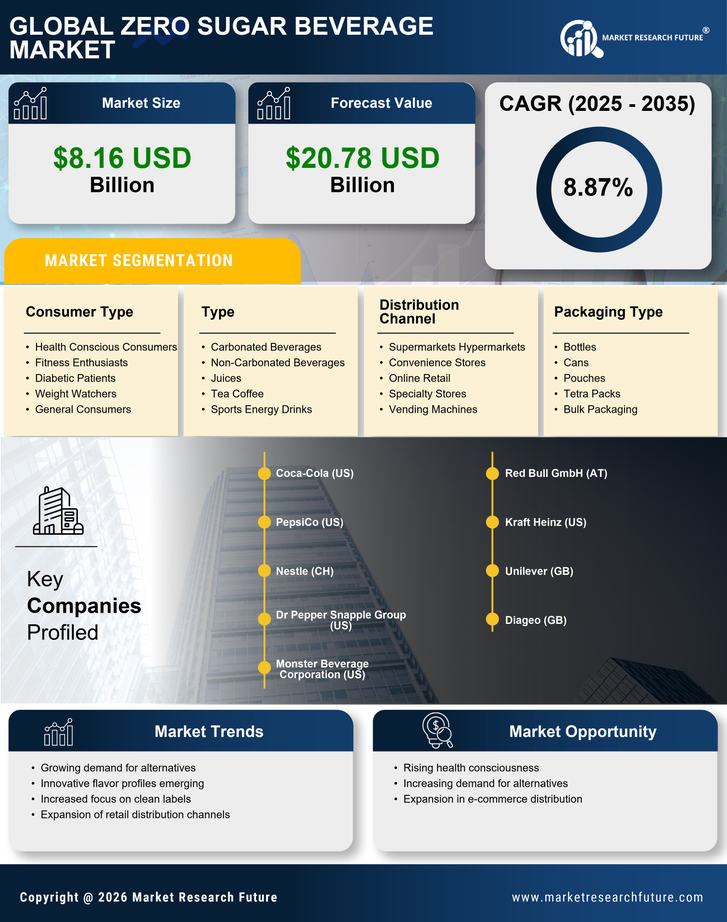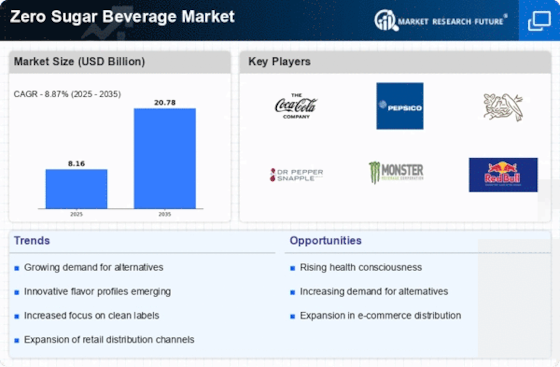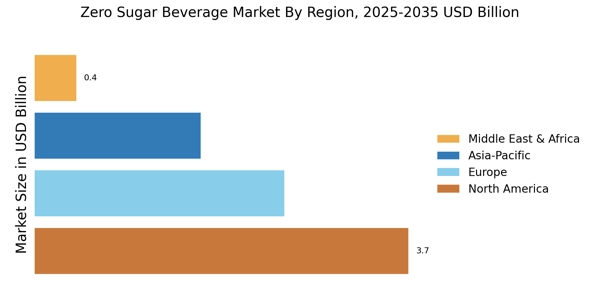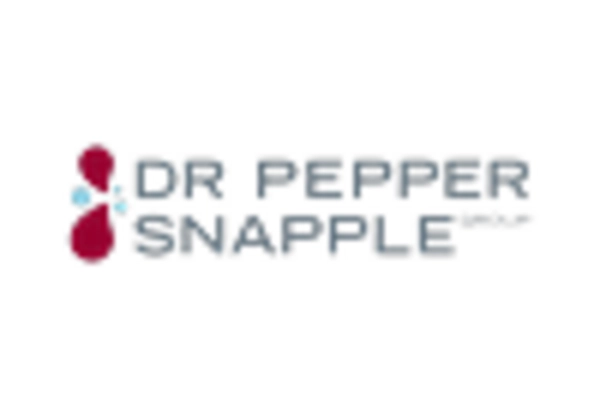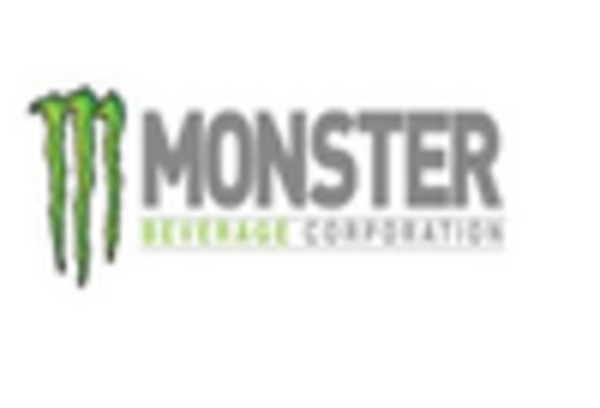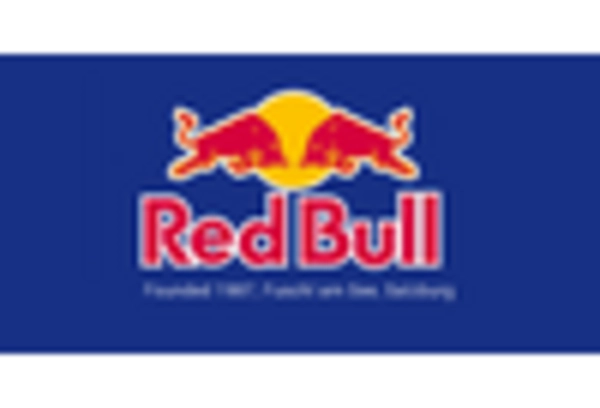Rising Health Awareness
The increasing awareness of health and wellness among consumers appears to be a primary driver for the Zero Sugar Beverage Market. As individuals become more informed about the adverse effects of sugar consumption, they are actively seeking alternatives that align with their health goals. Reports indicate that a significant portion of the population is now prioritizing low-calorie and sugar-free options, leading to a surge in demand for zero sugar beverages. This trend is particularly evident among younger demographics, who are more inclined to adopt healthier lifestyles. Consequently, manufacturers are responding by innovating and expanding their product lines to include a variety of zero sugar options, thereby enhancing their market presence. The Zero Sugar Beverage Market is likely to continue benefiting from this health-conscious shift, as consumers increasingly opt for beverages that support their wellness objectives.
Changing Consumer Preferences
Shifts in consumer preferences are playing a pivotal role in shaping the Zero Sugar Beverage Market. As lifestyles evolve, there is a noticeable trend towards healthier and more mindful consumption. Consumers are increasingly scrutinizing ingredient labels and seeking products that align with their values, such as being low in calories and free from added sugars. This shift is particularly pronounced among millennials and Generation Z, who are more likely to prioritize health and sustainability in their purchasing decisions. Market data indicates that beverages marketed as zero sugar are gaining traction, reflecting a broader societal move towards wellness-oriented choices. Consequently, brands that effectively communicate their commitment to health and transparency are likely to thrive in the Zero Sugar Beverage Market, appealing to this discerning consumer base.
Innovative Product Development
Innovation in product development is a crucial factor propelling the Zero Sugar Beverage Market forward. Beverage companies are investing in research and development to create unique formulations that not only eliminate sugar but also enhance flavor and appeal. This includes the use of natural sweeteners and flavor enhancers that mimic the taste of traditional sugary drinks. Data suggests that the introduction of innovative flavors and functional ingredients, such as vitamins and minerals, is attracting a broader consumer base. As a result, the market is witnessing a diversification of offerings, ranging from sparkling waters to flavored teas and energy drinks, all devoid of sugar. This trend indicates that the Zero Sugar Beverage Market is evolving to meet the diverse preferences of consumers, thereby fostering growth and expanding market share.
Increased Availability and Accessibility
The expansion of distribution channels is significantly influencing the Zero Sugar Beverage Market. Retailers are increasingly recognizing the demand for zero sugar options and are adjusting their inventory to include a wider range of products. This includes not only supermarkets and convenience stores but also online platforms, which have become essential for reaching a broader audience. Recent statistics reveal that e-commerce sales of beverages, including zero sugar options, have seen substantial growth, indicating a shift in consumer purchasing behavior. As availability increases, consumers are more likely to try and adopt these beverages into their daily routines. This enhanced accessibility is likely to drive further growth in the Zero Sugar Beverage Market, as more consumers discover and choose these healthier alternatives.
Regulatory Support for Healthier Options
Regulatory frameworks promoting healthier beverage choices are emerging as a significant driver for the Zero Sugar Beverage Market. Governments and health organizations are increasingly advocating for reduced sugar consumption due to its association with various health issues, including obesity and diabetes. This has led to initiatives aimed at encouraging manufacturers to develop and market low-sugar or sugar-free alternatives. For instance, some regions have implemented taxes on sugary drinks, which indirectly boosts the demand for zero sugar beverages. As regulations evolve, they create a more favorable environment for the Zero Sugar Beverage Market, incentivizing companies to innovate and expand their offerings. This regulatory support not only aids in consumer education but also aligns with public health goals, potentially leading to sustained growth in the market.
